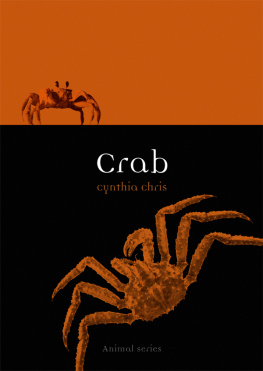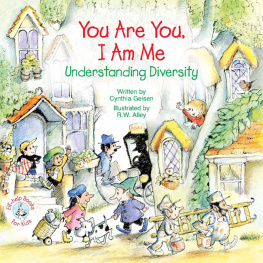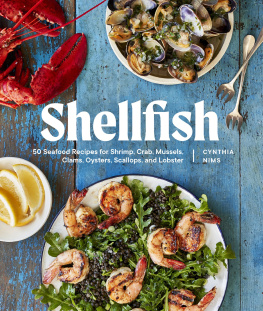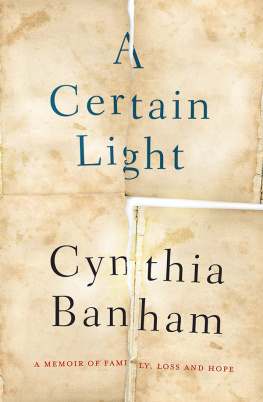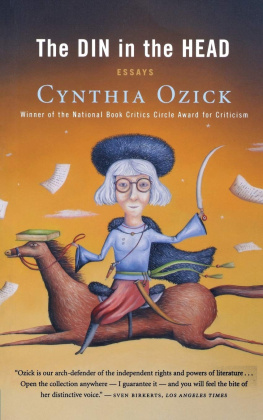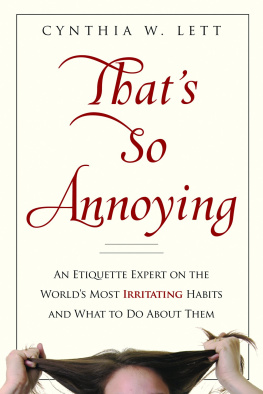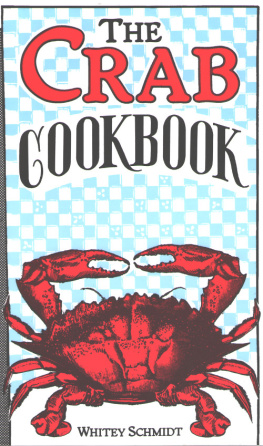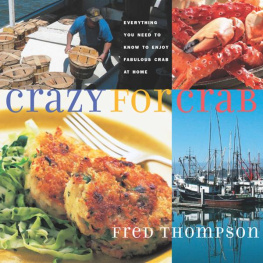Cynthia Chris - Crab
Here you can read online Cynthia Chris - Crab full text of the book (entire story) in english for free. Download pdf and epub, get meaning, cover and reviews about this ebook. year: 2021, publisher: Reaktion Books, genre: Romance novel. Description of the work, (preface) as well as reviews are available. Best literature library LitArk.com created for fans of good reading and offers a wide selection of genres:
Romance novel
Science fiction
Adventure
Detective
Science
History
Home and family
Prose
Art
Politics
Computer
Non-fiction
Religion
Business
Children
Humor
Choose a favorite category and find really read worthwhile books. Enjoy immersion in the world of imagination, feel the emotions of the characters or learn something new for yourself, make an fascinating discovery.
- Book:Crab
- Author:
- Publisher:Reaktion Books
- Genre:
- Year:2021
- Rating:3 / 5
- Favourites:Add to favourites
- Your mark:
- 60
- 1
- 2
- 3
- 4
- 5
Crab: summary, description and annotation
We offer to read an annotation, description, summary or preface (depends on what the author of the book "Crab" wrote himself). If you haven't found the necessary information about the book — write in the comments, we will try to find it.
Crab — read online for free the complete book (whole text) full work
Below is the text of the book, divided by pages. System saving the place of the last page read, allows you to conveniently read the book "Crab" online for free, without having to search again every time where you left off. Put a bookmark, and you can go to the page where you finished reading at any time.
Font size:
Interval:
Bookmark:

Crab

Animal
Series editor: Jonathan Burt
Already published
Albatross Graham Barwell Ant Charlotte Sleigh Ape John Sorenson Badger Daniel Heath Justice Bat Tessa Laird Bear Robert E. Bieder Beaver Rachel Poliquin Bedbug Klaus Reinhardt Bee Claire Preston Beetle Adam Dodd Bison Desmond Morris Camel Robert Irwin Cat Katharine M. Rogers Chicken Annie Potts Cockroach Marion Copeland Cow Hannah Velten Crab Martin Wallen Crocodile Dan Wylie Crow Boria Sax Deer John Fletcher Dog Susan McHugh Dolphin Alan Rauch Donkey Jill Bough Duck Victoria de Rijke Eagle Janine Rogers Eel Richard Schweid Elephant Dan Wylie Falcon Helen Macdonald Flamingo Caitlin R. Kight Fly Steven Connor Fox Martin Wallen Frog Charlotte Sleigh Giraffe Edgar Williams Goat Joy Hinson Goldfish Anna Marie Roos Gorilla Ted Gott and Kathryn Weir Guinea Pig Dorothy Yamamoto Hare Simon Carnell Hedgehog Hugh Warwick Hippopotamus Edgar Williams Horse Elaine Walker Hyena Mikita Brottman Human Amanda Rees and Charlotte Sleigh Jellyfish Peter Williams Kangaroo John Simons King fisher Ildiko Szabo Leech Robert G. W. Kirk and Neil Pemberton Leopard Desmond Morris Lion Deirdre Jackson Lizard Boria Sax Llama Helen Cowie Lobster Richard J. Kin Mole Steve Gronert Ellerhoff Monkey Desmond Morris Moose Kevin Jackson Mosquito Richard Jones Moth Matthew Gandy Mouse Georgie Carroll Octopus Richard Schweid Ostrich Edgar Williams Otter Daniel Allen Owl Desmond Morris Oyster Rebecca Stott Parrot Paul Carter Peacock Christine E. Jackson Pelican Barbara Allen Penguin Stephen Martin Pig Brett Mizelle Pigeon Barbara Allen Polar Bear Margery Fee Raccoon Daniel Heath Justice Rat Jonathan Burt Rhinoceros Kelly Enright Salmon Peter Coates Sardine Trevor Day Scorpion Louise M. Pryke Seal Victoria Dickenson Shark Dean Crawford Sheep Philip Armstrong Skunk Alyce Miller Snail Peter Williams Snake Drake Stutesman Sparrow Kim Todd Spider Katarzyna and Sergiusz Michalski Squid Martin Wallen Swallow Angela Turner Swan Peter Young Tiger Susie Green Tortoise Peter Young Trout James Owen Turtle Louise M. Pryke Vulture Thom van Dooren Walrus John Miller and Louise Miller Wasp Richard Jones Whale Joe Roman Wild Boar Dorothy Yamamoto Wolf Garry Marvin Woodpecker Gerard Gorman Zebra Christopher Plumb and Samuel Shaw
Cynthia Chris

Published by
REAKTION BOOKS LTD
Unit 32, Waterside
4448 Wharf Road
London N1 7UX, UK
www.reaktionbooks.co.uk
First published 2021
Copyright Cynthia Chris 2021
All rights reserved
No part of this publication may be reproduced, stored in a retrieval system or transmitted, in any form or by any means, electronic, mechanical, photocopying, recording or otherwise, without the prior permission of the publishers
Page references in the Photo Acknowledgements and
Index match the printed edition of this book.
Printed and bound in India by Replika Press Pvt. Ltd
A catalogue record for this book is available from the British Library
eISBN 9781789143706
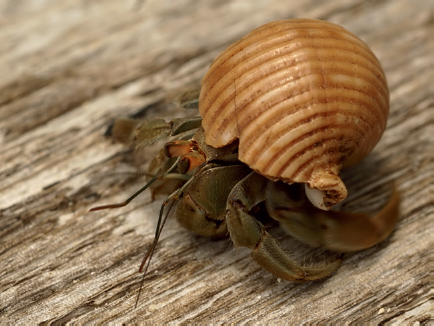
Ecuadorian hermit crab (Coenobita compressus), Cabo Playa, Nicoya Peninsula, Costa Rica.
What crabs? Are you mad? What crabs?
Jean-Paul Sartre, The Condemned of Altona (1959)
On the southwest edge of Costa Rica, Osa Peninsula juts into the Pacific Ocean, like a short boot heading towards the countrys border with Panama. Corcovado National Park occupies much of the peninsula. At 425 sq. km (164 sq. mi.) it is Costa Ricas largest national park. It is also a biodiversity hotspot, with a dazzling array of animal species soaring through the air, occupying the trees and ambling, crawling or slithering throughout the dense rainforest. Animals also scurry underfoot, which is where I came upon Coenobita compressus, the Ecuadorian or Pacific hermit crab, a terrestrial species that requires access to saltwater pools or shorelines.
While taking a walk on the beach, I suddenly saw these small creatures, some not much larger than a pencil rubber. They moved with great purpose until I came within a couple of footsteps. When I knelt to take a closer look, they sought to blend into their surroundings by withdrawing into their scavenged shells. If I stood stock-still, they would emerge and continue their trek across the beach. There werent just a few isolated animals, but rather thousands, each and every one headed from the shoreline to the top of the beach at the rainforests edge. It was late afternoon, the sun was thinking about setting, and the hermit crabs were seeking shelter for the night under a park rangers station, a wooden structure slightly elevated on short stilts. One of the rangers saw me observing the crabs and invited me to approach. Peeking under the building, I could see them swarming in uncountable numbers. Every morning, he explained, the crabs head towards the water to feed, and every evening they come back to pass the night under this building. Astonished at this massive gathering of funny little animals but eager to get back to my lodging before dusk, I thanked the ranger and went on my way.
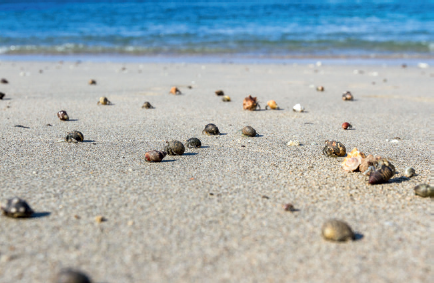
Hermit crabs on a beach in Costa Rica.
Admittedly, not everyone may think of a swarm of scuttling crabs as funny. Jean-Paul Sartre, for example, was haunted by hallucinated crabs for years after a mescaline trip. He deployed crabs allegorically in many of his works, including the novel Nausea (1938), in which Antoine Roquentin experiences himself as crab-like, and the play The Condemned of Altona (1959), where human atrocities lead to our extinction and the rise of crabs as the Earths dominant species.
I didnt think much about the hermit crabs during the rest of my week in the area. Instead, I went birdwatching at dawn, catching glimpses of iconic toucans, half a dozen different hummingbirds, three monkey species, anteaters, coati and a sleepy sloth nested high in a tree. Late at night, I slogged in knee-high rubber boots back and forth across a rocky estuary to observe delicate glass frogs and a startlingly green eyelash viper. But when I returned home, two questions about the hermit crabs kept coming back to me. First, although there were thousands of them, regardless of how far I walked on the beach, I never saw empty seashells. As a hermit crab grows, she casts off her current shell in favour of a larger specimen. Where could these crabs find shells, if the emptied shells of deceased molluscs were nowhere to be seen? I learned that most of the shells that hermits use are the remains of deceased marine gastropods (sea snails). And when one growing hermit crab abandons a shell and occupies a new one, a smaller hermit might inhabit its cast-off. These hermits might find their shell homes out at sea and might limit their accumulation on the shore through recycling, as larger crabs hand down outgrown shells to smaller ones.
Font size:
Interval:
Bookmark:
Similar books «Crab»
Look at similar books to Crab. We have selected literature similar in name and meaning in the hope of providing readers with more options to find new, interesting, not yet read works.
Discussion, reviews of the book Crab and just readers' own opinions. Leave your comments, write what you think about the work, its meaning or the main characters. Specify what exactly you liked and what you didn't like, and why you think so.

